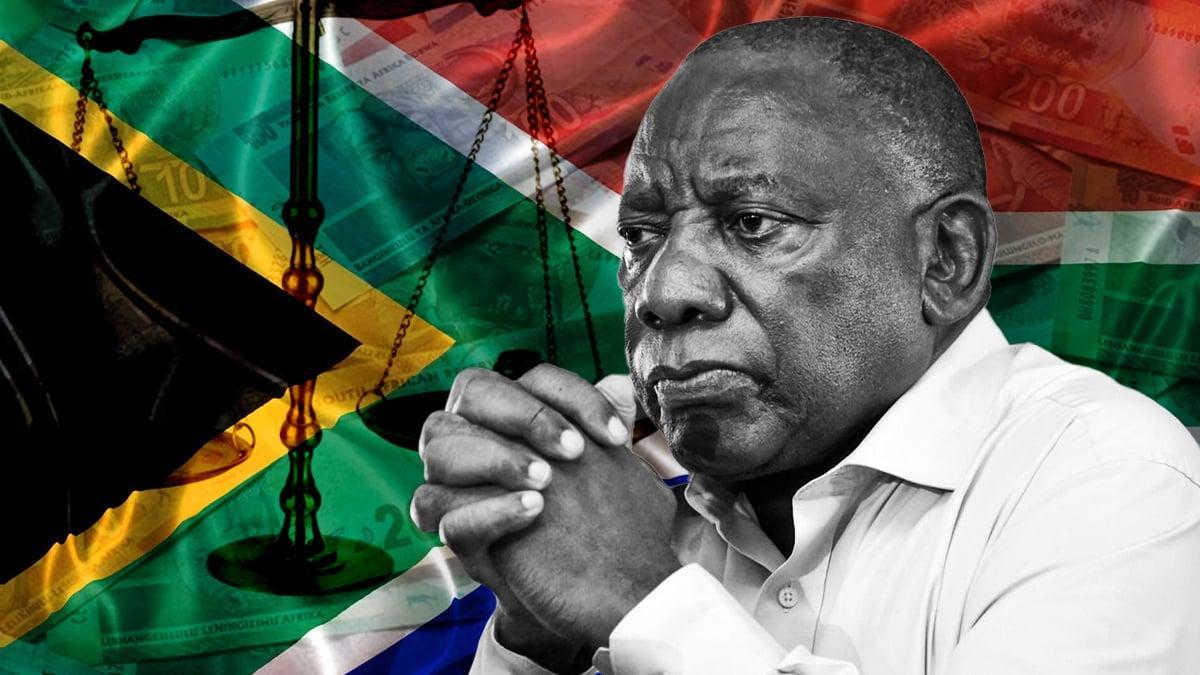Africa-Press – South-Africa. President Cyril Ramaphosa is on the path to becoming a lame duck, as he fails to exercise executive authority over parts of the state, particularly the military and law enforcement.
This is coupled with an ANC that is becoming increasingly preoccupied with succession politics, with the party set to have its elective conference in 2027 to elect a new president and leadership team.
As a result, very little action has been taken to drive reforms to improve economic growth and secure a trade deal with the United States.
This has led to speculation that the country is headed for a period of significant political instability and perhaps a change in government.
Efficient Group chief economist Dawie Roodt said he is deeply concerned about the situation South Africa finds itself in regarding the lack of decisive leadership in the government.
Roodt told BizNews that South Africa has seen an alarming rise in high-ranking officials in law enforcement and the military openly criticising the government, without consequence.
While he may agree with certain points raised and considers some criticism valid, Roodt said they should be brought up in the political sphere and not come from law enforcement or the military.
“It is the job of civilians, political parties, and the government to do these sorts of things. I disagree with who our politicians align themselves with internationally, but that is their job,” Roodt said.
“If you do not like it, then you can vote them out. That is not the job of a military official to dictate foreign policy or critique local policy.”
Roodt said that when these kinds of things occur in a country, they indicate that the government is weak and unwilling to act.
“What it tells me is that the President and the government are very weak. I will not be surprised if we see some dramatic changes in the ANC,” Roodt said.
“I do not want to use this word, but I am very concerned about the political stability of South Africa.”
“Clearly, what we are seeing is an implosion among the top leadership of the government, and they have clearly lost power and full control over those institutions, which they should, particularly the military and law enforcement.”
Ramaphosa a lame duck
The inability of Ramaphosa and the government to act decisively can also be seen in other spheres, particularly that of the economy.
Despite acknowledging that South Africa is in a state of emergency regarding its economy, Ramaphosa has failed to act decisively to revive economic growth.
Furthermore, with the United States, the government has been unwilling to meaningfully engage with America’s concerns.
The Centre for Risk Analysis (CRA) said this indicates that the ANC is focused on retaining its position as South Africa’s dominant political force and not on reviving the local economy.
This points to a political party that is determined not to adapt to changing circumstances, both locally and globally.
Ramaphosa has referred to the Government of National Unity (GNU) as a “tactic” that “has enabled the ANC to continue to execute its agenda under conditions imposed on us by the strategic electoral setback we suffered last year”.
As part of that tactic, the ANC is considering adding more parties to the GNU, which would dilute the DA’s influence.
The CRA said Ramaphosa appears to be entering the lame duck period of his presidency without much focus on reviving South Africa’s stalled economy or improving relations with the United States.
It expects heightened political volatility within the ANC as individuals jockey for positions ahead of the party’s next electoral conference in 2027.
The clearest sign of Ramaphosa entering the lame duck period of his presidency is his inability to act decisively to strike a trade deal with the United States.
South Africa has been hit with 30% tariffs on goods exported to the world’s largest economy as it failed to strike a deal with the United States.
The CRA said investor confidence is unlikely to recover while Washington’s demands on property rights, security, and BEE remain unaddressed.
It said the real impasse is political – US demands for liberal economic reform clash with the ANC-led government’s commitment to the National Democratic Revolution.
The ANC’s political will, not the negotiators’ skill, is the main obstacle to any deal. The party regards the tariffs as a “calamity that has befallen us”, as Ramaphosa puts it, rather than being something within its power to change.
Source: dailyinvestor
For More News And Analysis About South-Africa Follow Africa-Press






